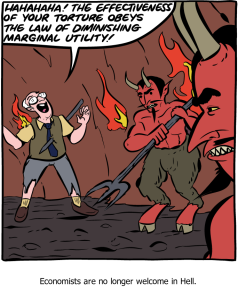In a recent article from Ars Technica, Jon Brodkin outlines the arena where Netflix, Comcast, and the FCC are battling over the implementation of data caps from ISPs.
The deeper issue here is how we approach net neutrality and allow ISPs to control content. Facing data caps, consumers will have to make marginal choices on what content to consume, forcing some consumers off the internet and onto cable TV. This seems like a clear reduction in competition.
Comcast, a; virtual monopoly in some markets, argues that the implementation of data caps are to “align consumers’ use of the network with what they pay.” This tactic known as price discrimination, allows firms to charge a consumers willingness to pay instead of one flat market price.
Comcast isn’t alone in their actions though. Take for instance mobile ISPs and their arbitrary mobile data caps. Overage charges again are a way for ISPs to determine a consumer’s willingness to pay for access to streaming content. Moreover, some mobile carriers have exclusive deals in place with content providers where streaming content from these providers does not count against consumers’ data caps. This is clearly a net neutrality issue and one that many consumers have yet to understand.

